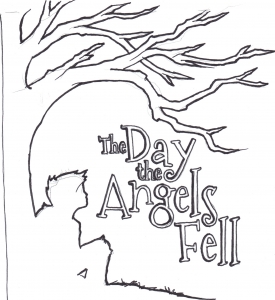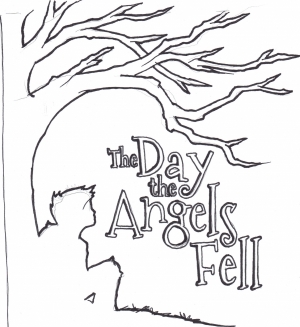 When I first released my book, The Day the Angels Fell, I cringed whenever I visited the Amazon or Goodreads page, as if peeking my head out of the window and waiting for gunfire. I was scared. Had someone written a review that excoriated my book, my writing ability, my humanity? Had someone absolutely despised my storytelling? Had I screwed up the plot, the characterization?
When I first released my book, The Day the Angels Fell, I cringed whenever I visited the Amazon or Goodreads page, as if peeking my head out of the window and waiting for gunfire. I was scared. Had someone written a review that excoriated my book, my writing ability, my humanity? Had someone absolutely despised my storytelling? Had I screwed up the plot, the characterization?
Was I a terrible human being?
But as the first three months passed, and more copies sold, the good reviews began to pile up. Mostly four- and five-star reviews with a few three-stars thrown in for good measure. It was nice. It was comforting. I started to see the review section of these pages as a friendly place.
On March 23rd, 2015, everything changed.
Well, maybe it wasn’t quite that dramatic.
But that was when The Day the Angels Fell got its first one-star rating on Goodreads. I stared at the rating with some surprise, and a little shock, the way villains always look in the movies when they’ve been stabbed in the gut and they realize it was the fatal blow.
But I never thought I would die in this movie, their face seems to say. I thought I was the protagonist.
For a moment, just a moment, all those little voices started to amplify. You suck. Your writing sucks. You should really have been an economist. Or a taxidermist. Or something with regular pay, because, you know, your writing is terrible.
After you’ve created your art, whatever it is – a service, an idea, an interaction, a performance, a meeting – it’s done. What the audience does with it is out of your control.
If you focus your angst and emotion on the people who don’t get it, you’ve destroyed part of your soul and haven’t done a thing to improve your art. Your art, if you made it properly, wasn’t for them in the first place. Worse, the next time you make art, those nonbelievers will be the ones at the front of your mind.
– Seth Godin
My friend Jason shared that quote with me the other day, and it helped me to verbalize what I experienced after that one-star rating. Because moments after seeing it, I realized.
Who cares?
I gave that book everything I had at the moment, every ounce of writing skill, every precious idea and thought I had to offer. That was the best that I could do. And you know what?
A lot of people loved it. I get messages and texts and emails from folks who loved the book! Their kids loved it. I’ve had people ask me in depth questions about the book, questions about details so minor I didn’t have answers for them. People obviously cared, and I take immense pleasure and relief in that. The next book, the sequel to The Day the Angels Fell, will be for those people, and while I’m revising it, they will be the ones at the forefront of my mind.
Not the one-star reviewer.
But that is what the one-star rating did for me. It ushered me one more small step along the road to not caring what other people think, to writing the story that needs to be written, and to enjoying my work. One-star ratings help me to build really important artistic callouses, the kind that make my work easier over time, the kind that allow me to put in the hard work without feeling the sting of rejection after every sub-par review. Worry, anxiety, and self-doubt are terrible co-creators.
What are you creating?
Who are you listening to?
(If you’d like to leave a rating or review of the book, you can do that at Amazon, Barnes and Noble, Goodreads…or all three. Thank you!)
* * * * *
This coming Sunday evening Caleb Wilde and I will be at the Corner Coffee Shop to talk about the death-positive message behind The Day the Angels Fell, as well as how we talk about death with our own children. Kids are welcome! Check out the details HERE.


One Reply to “What I Did After My First One-Star Rating (or, Creating With the Right People in Mind)”
Comments are closed.